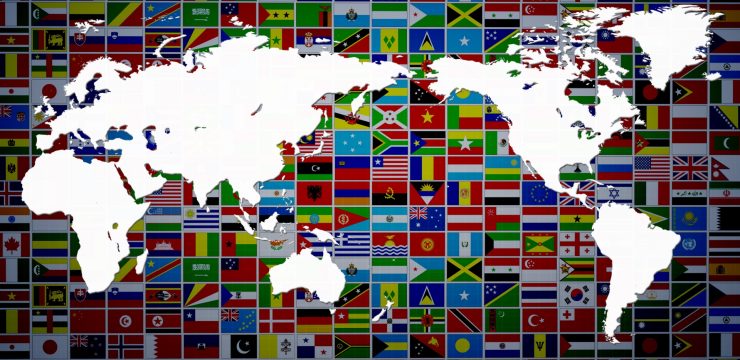It was the French who founded the first permanent European settlements in Canada. Therefore, the unicorn on the coat of arms of the country holds a flag with three French heraldic lilies (fleurs-de-lis) – a symbol of French Canada. And the very word “Canada” was applied to this country by the French navigator Jacques Cartier in 1534. By the way, the word “Canada”, in one of the Iroquois languages, means “village”, “settlement”. By 1745 most of the continent was nominally under French control. The territory was called New France (La Nouvelle-France).
In Canada, French is the official language. In the province of Quebec, knowing French and translate french to english are highly desirable. And for work in government institutions and large and medium-sized firms – a must! The Charter of the French language (Charte de la langue française) of 1977 requires the conduct of office work in it.

Knowledge of French can be very useful for establishing profitable trade transactions with French-speaking countries. And these are, besides France, Belgium, Switzerland and several dozen resource-rich countries in Africa.
Canada is waiting for immigrants and is trying to select the most valuable. Numerous programs are aimed at meeting the differing demands of provinces and territories, taking into account the shortage of certain personnel or the desire to strengthen specific groups. This diversity allows entrepreneurs, artists, and skilled workers to find a place for themselves.
Given the nominally equal status of the two languages in Canada, it is possible to immigrate to this country knowing only one French language. That is, instead of IELTS in English, you should pass the TEF in French. Moreover, there are separate immigration programs for French-speaking specialists. The province of New Brunswick, for example, is interested in attracting francophones and allows them to apply to the provincial program, counting knowledge of French as a link with the province, helping to maintain a balance of languages. Therefore, in some cases, it is easier for francophones to enter Canada.
On the other hand, taking part in the Express Entry program as a native English speaker with good IELTS scores, you can add a significant amount of points by presenting documents that knowledge of French is at a high level. This will increase your chances of success in translate french to english.
Knowledge of state languages even at the initial level will help to get an invitation to Canada. And for those who know French well, it will be much easier to achieve this. The first steps can be taken online: register for Express Entry or apply for a separate program, and then, if everything goes well, plan the move and settle in a new place.
Thus, a person who has a good command of both official languages of Canada is in high demand and has a much better chance of getting a well-paid job.
Do you think you should go to France or Canada to work?







